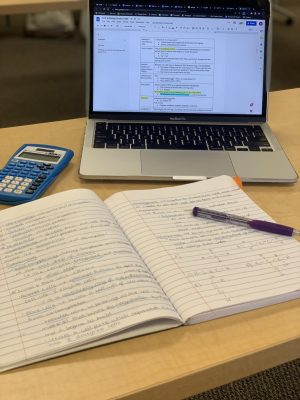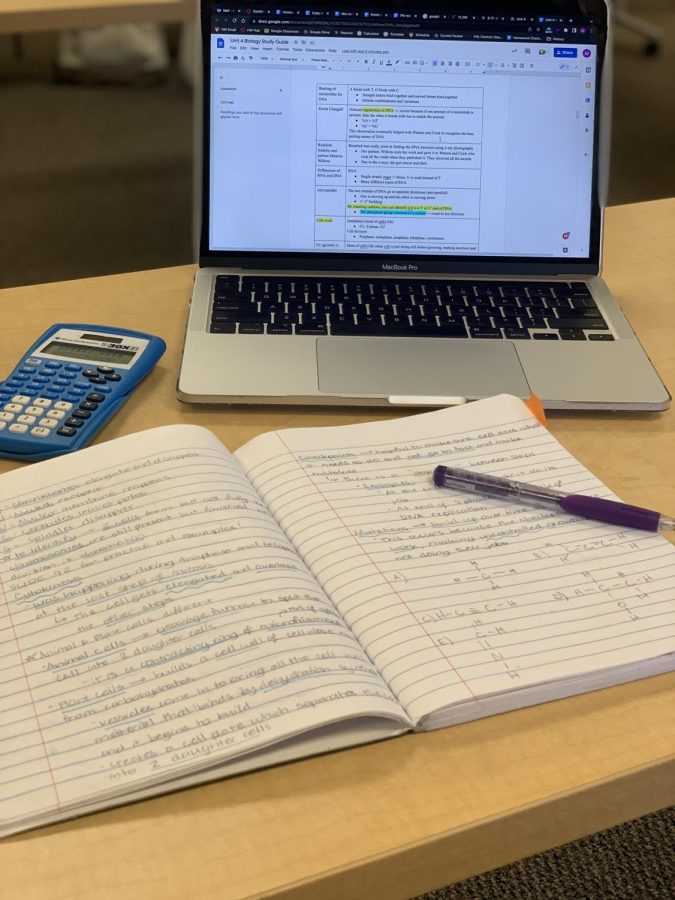How students’ schedules and sleep habits affect stress
By Olivia Gubel ’21
The school has a significant reputation of having overstressed students. The so-called “prestige” and “rigor” are often off-putting to the public. Some students are able to manage their time and activities while keeping calm and experiencing a sense of accomplishment, others fall into a mode of panic. Eustress is moderate stress that pushes people to work a bit harder, while distress can interfere with success and personal well-being. If students properly manage their time and stress, they can go through their classes without experiencing panic.
In a recent survey sent out to all middle school students, 10 percent of the 103 seventh grade respondents said that they experience distress, described as feeling “constantly over stressed” or feeling like they “cannot possibly complete all that is asked of (them).” This percentage increases in eighth grade to 14% and even more (21%) in ninth grade. The data collected shatters the notion that “all students at Harvard-Westlake are constantly stressed.”
Lack of sleep, which is common among students, has a considerable effect on their stress levels. Lack of sleep is also conducive to weaker cognitive abilities, which include studying productively and organizing one’s time. The National Sleep Foundation recommends that children in seventh and eighth grade should get between nine and 11 hours of sleep per night. Only about half of seventh and eighth grade respondents are getting the recommended amount. Moreover, only 25% of ninth grade respondents sleep between eight and 10 hours, which is what is recommended for their age range. This hypothesis is encouraged by the survey: in seventh grade, all students who feel “overly stressed” have reported getting a considerably low amount of sleep. It is likely that that their stress is strengthened by this.
Two thirds of seventh grade respondents who report eustress also participate in over 11 hours of extracurricular activities per week. Most of these students report feeling stressed about their lack of sleep, suggesting that these overachieving students have a natural inclination to put themselves under stress. In addition, there was a correlation between higher self-rated organizational skills and stress levels. It is very probable that improving organizational skills will improve grades and decrease stress. In addition, the community is a self-selective study. Most students have extremely high expectations for themselves, from attending the most prestigious universities to making sports teams. These overachievers would likely experience high levels of stress wherever they were to attend school.
About one in seven eighth grade respondents report feeling overstressed. Data shows that feeling overstressed has a correlation to extra curricular activities, productivity and organization. It is likely that the stress that students feel from their school work is made stronger because of their procrastination. For example, most eighth grade survey respondents claiming feel overstressed don’t begin their homework during their first free period. This supports the fact that although students may feel stressed, they are sabotaging themselves by procrastinating.
After reviewing the survey results, it seems that productivity and organization is the key. Those who rate their organization skills higher on a 1-10 scale reported better grades and less distress. In fact, only 8% of students who report using their free periods productively reported symptoms of distress.
The percent of ninth grade respondents who experience overstress rises to almost a quarter. However, the vast majority of these students are getting seven or fewer hours of sleep per night. It also seems that an increase in hours in which a student participates in extracurricular activities does not correlate to stress. The clearest pattern among students who feel moderately or mildly stressed is likely to be related to the amount of sleep they get. Over 90% of respondents who get the NSF’s recommended amount of sleep do not experience distress. In addition, distress is less common in students who are self-driven and whose parents encourage them to relax a bit. Almost half of respondents who rated their organization skills below a “5” experience too much stress. Once again, those who rated their organizational skills at or above an “8” had a significant decrease in distress overall. Most of the students who still experience overstress despite proficient organization skills get between five and seven hours of sleep.
If students were to examine their study habits and tendencies to stress with a more critical eye, they would likely be able to reduce their feelings of panic and cease to contribute to the school’s cutthroat reputation. Our tendency to blame outside sources for our emotions gets in the way our personal success, efficiency and well-being.









